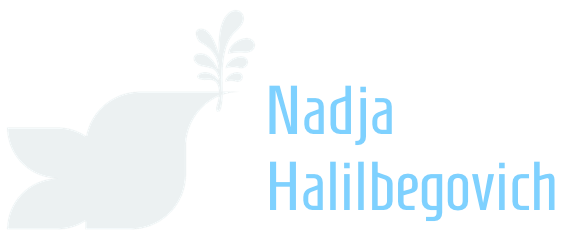I read stories about children of war almost every single day. I've developed this habit organically, out of deep compassion for their plight . My fierce interest is not only due to the fact that I was once a child of war myself. It is amplified by the tragic fact that children remain the most innocent yet often entirely voiceless victims of world conflicts. I feel a deep sense of responsibility to keep informed about them. As I read update after update by NGOs, the UNHCR and various media outlets, I am painfully struck by the similarities of the kinds of trauma children all over the world experience due to wars and violence. The country, the year of conflict, the circumstances are different, but their lives of deprivation and devastation are tragically universal.
Even in pictures , there are striking similarities between war children. Their bodies often curl inwards as they sit or sleep clutching a toy or a ratty belonging. I recognize myself in them, I recognize that desperate instinct to try to to make yourself smaller, more compact. As if that will somehow make you safer, a bit less exposed to the chaos outside. I search their eyes and at first I see the distress from what they've seen. I search a bit further and see their desperate questioning "WHY?" and "Is this really happening to me?" From experience, I know that at some point, the fear and the questions in their eyes will make room for the irreversibly painful knowledge that we as humans are capable of so much destruction.
There are over 60 million displaced people today, many of them children. These figures are beyond staggering: 60 million people, 60 million stories. They scream for our attention, our compassion, our action. Governments, leaders and citizens alike should not avert their eyes and ignore their plea. I remember writing in my diary during the siege of Sarajevo. At first I was so hopeful that the world and its good people would stop the attacks on civilians, but then as time passed, my hope grew pale and I began to feel frustration, even anger, as the world remained inert and silent. Throughout the long three and a half years of living in fear and in a constant grip of anxiety, my hope sank, rose, sank and rose again. At times, even at the young age of 14, I felt numb, almost resigned to a slow and painful extermination.
Still, as we say in Bosnian "Nada je zadnja koja umire" ("Hope dies last") and so despite my struggles, I'd grab and clutch any shred of hope I could. I was heartened and inspired by the kindness of strangers (one example was my pen pal Gregoire from France who wrote me letters and sent the most wonderful box of candy and school supplies) and the help of organizations such as UNICEF which provided food, warm blankets and clothing. I remember being very touched by the special visit from Audrey Hepburn, UNICEF Goodwill Ambassador, who shared her own childhood traumas from WW II as she appealed for the cessation of bombings. Sadly, countless attempts at ceasefire, peace treaties and appeals for protection of children fell prey to senseless violence and aggression. Still I hung onto hope that one day peace would prevail.
I know that millions of children today in their war-torn countries and crowded refugee camps struggle to hold onto any shred of hope that someone is going to help them. Like many of you, I often ask myself: "How can I help?" Being a child of war I feel a deep sense of camaraderie and moral responsibility to do my part in advocating for war children. Sharing my story and giving speeches in schools and universities has offered me a sense of satisfaction in knowing that in some small way, I help inform and educate others about the plight of children. I believe that education and information are the first step to bringing about change.
It has been enlightening for me to live in the West for the past 20 years. I have gained a unique perspective of what it feels like to be living in peace and comfort as people in many other parts of the world experience struggles similar,or worse, than I did. I know that most of us have busy lives, families, jobs and responsibilities. There are many people who are struggling to feed their own families and pay bills regardless of the fact that they live in a prosperous and free society. We all have hopes, dreams, fears, challenges, illnesses, anxieties. You don't have to be a victim of war to experience struggle or loss. But I also know that there are so many well-meaning people who want to help, but who feel overwhelmed and unsure of how to make a difference.
From my experience, I can honestly tell you that no kindness is too small to imbue some much needed hope into the hearts of traumatized children. There have been countless examples such as young school children sending colorful cards and letters to refugee children in camps, communities sending clothing, blankets and supplies, people giving monetary donations to numerous NGOs such as UNICEF, Red Cross and Save the Children. With a number of refugees arriving to Canada there have been many wonderful stories of volunteers welcoming families, helping them adjust to their new home, helping them learning a new language.
In the face of such global human crises, I hope we will choose compassion over apathy, action over inert silence.
I hope each one of us will find a way to offer hope, to offer kindness.
Peace,
Nadja
P.S. There are many wonderful NGOs working to help, but one very dear to my heart is UNICEF. Here is the link if you are able to volunteer or donate: http://www.unicef.org/
